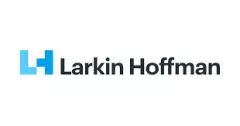The EEOC appears to be focusing on alleged religious discrimination of Muslim women who are denied employment. In two lawsuits brought by the EEOC, female Muslim applicants refused to remove their head scarves and were denied employment.
EEOC v. Kelly Services, Inc., 598 F.3d 1022 (8th Cir. 2010).
The EEOC argued in this case that a temporary employment agency (Kelly Services, Inc.) refused to place a female Muslim applicant at an industrial printing company because she declined to remove her head scarf for religious reasons. Kelly Services argued that it did not place the applicant with the printing company because the company had a strict dress policy forbidding any headwear for safety reasons. Moreover, Kelly Services argued that it offered the Muslim applicant seven other placements where she could wear her head scarf, but she refused those job placements.
The district court granted summary judgment in favor of Kelly Services. The Eighth Circuit Court of Appeals affirmed and held that Kelly Services did not engage in religious discrimination. First, the Eighth Circuit determined that the EEOC had not shown the applicant had "suffered an adverse employment action," which is an essential element of a prima facie case of religious discrimination. The court reasoned that there was no evidence that there was even a position available at the printing company when she applied for a position through Kelly Services.
Second, the Court reasoned that Kelly Services had a "legitimate, non-discriminatory reason" for declining to refer the applicant to the printing company for employment. Kelly Services' reason was a facially neutral, safety-driven dress policy which prohibited all employees from wearing loose clothing or headwear of any kind for legitimate safety concerns. There was no evidence that the company's safety-driven dress policy was a pretext for discriminating against Muslim applicants.
EEOC v. White Lodging Services, Corp., W.D. Ky., No. 3:06-CV-353 (March 31, 2010).
The EEOC brought a religious discrimination claim on behalf of four Muslim women who were denied employment with White Lodging Services after they refused to remove their head scarves. In this case, the Louisville Marriott contracted with White Lodging Services to manage the hotel, including hiring the housekeeping staff. White Lodging, in turn, contracted with Hospitality Staffing Solutions ("HSS") to provide White Lodging with applicants for the hotel's housekeeping staff. An HSS employee brought four Muslim women to the housekeeping department of the hotel to interview for available housekeeping positions. The women wore head scarves in accordance with their Muslim practice.
The HSS employee presented the four Muslim women for interviews with the Director of Housekeeping Department. The director asked the HSS employee whether the women could remove their head scarves. He was told that it was "impossible." The director never interviewed the women. HSS continued to bring other applicants to the director and he continued to hire those applicants. None of those hired, however, were Muslim women wearing head scarves.
The EEOC sued White Lodging on behalf of the four Muslim women. The district court denied White Lodging's Motion for Summary Judgment and determined that the EEOC's lawsuit may proceed to trial. The court determined that there were fact issues for the jury to decide as to what transpired on the day the Muslim applicants were to be interviewed. The court determined that it was for a jury to decide whether the director of White Lodging declined to interview the women because they did not agree to remove their head scarves and whether White Lodging had a duty to accommodate them.
These cases highlight the importance of adequately training all hiring personnel on discrimination. Hiring personnel should be made aware that accommodations may be necessary to employees who have sincerely held religious beliefs, including Muslim women who wear head scarves. A neutral dress policy, by itself, may be an insufficient reason to deny employment to a female Muslim applicant who declines to remove her head scarf without conducting a more detailed analysis as to whether an accommodation is possible.
The content of this article is intended to provide a general guide to the subject matter. Specialist advice should be sought about your specific circumstances.
We operate a free-to-view policy, asking only that you register in order to read all of our content. Please login or register to view the rest of this article.


